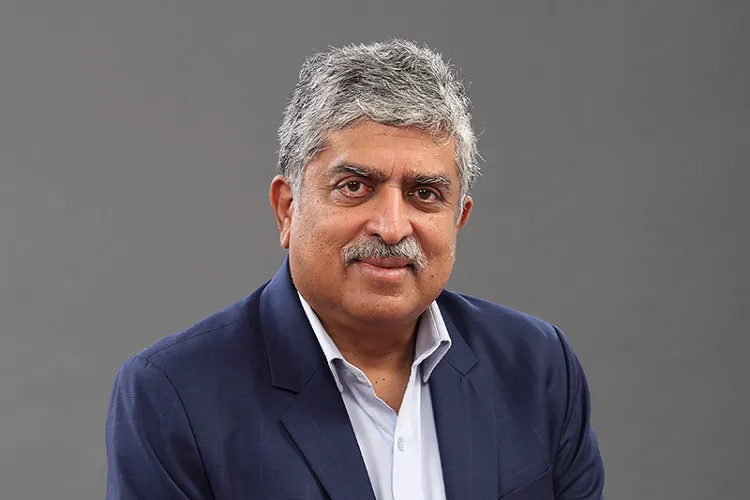
New Delhi
Nandan Nilekani, Co-Founder and Chairman of IT services major Infosys, has cautioned against the hype surrounding AI, emphasizing that the challenges of implementation remain the same. According to Nilekani, AI adoption requires significant effort and changes in workflow.
While speaking at the Carnegie Global Tech Summit 2025 on Friday, Nilekani noted that the gap between global developments and AI adoption in India is short.
He also stressed the need to change habits and workflows in enterprises and government to effectively integrate AI.
"Everybody is talking about AI, so the whole thing is much more hyperventilating, but fundamentally, the challenges of implementation are the same, like anywhere else, and we have to make sure habits change," Nilekani said.
"You have to change the workflow in enterprises or in government, so that AI is part of it. we have to do a lot of upgradation, but the fundamentals still matter," he added.
Nilekani emphasized that AI adoption will not be easier and will require the same effort, if not more. "AI doesn't mean it's going to be easier to do. It's going to take the same effort, if not more effort," he said.
He also highlighted the increased responsibility that comes with trusting machines to make decisions. "Because you're trusting the machine to give decisions more responsibility to make sure that it works," he affirmed.
Despite the challenges, Nilekani believes that India's technological sophistication over the past 15 years will enable faster AI adoption. "Because of India's situation today and the technological sophistication that we have been able to accomplish in the last 15 years or so, it is going to be much faster," he stated.
Nilekani expects the gap between global developments and AI adoption in India to be short. "The gap between the global developments and AI in India is going to be very short, and this is because of the transformation that we have done in India," he added.
Further, he also highlighted the key differences between previous tech revolutions and the current AI landscape.
According to Nilekani, the primary distinction lies in the fact that AI involves trusting non-human intelligence or decision-making.
"One of the key differences between previous tech revolutions or advances has been that, for the first time, we intend to place trust in nonhuman intelligence, or decision making. We didn't do that earlier, because earlier technology was deterministic, predictable," he said
"We also know that we are far more forgiving of human error, but much less forgiving of machine error. So now it's even harder in the enterprise in the consumer world, you can adopt AI scale, because somebody can land, launch a chatbot which everybody uses. And once in a while, the chatbot hallucinates or makes a mistake. You're willing to live with it. You're willing to live with the fact that the consumer chatbot has occasional mistakes," he added.
Noting that the implemention of AI is really difficult and will take a longer time in public sectors, Nilekani stated, "So in general, enterprise, AI is much harder and will take a long time, but the most difficult actually, is implementing AI in the public sector, because public sector has structural constraints, it has ministries, it has departments."
Notably, the ninth Global Technology Summit (GTS), co-hosted with the Ministry of External Affairs, Government of India, is being held from April 10 to 12, 2025, in New Delhi, with public sessions on April 11 and 12.
This year's theme, Sambhavna--meaning "possibilities" in Hindi--highlights the transformative potential of critical and emerging technologies to drive economic growth while shaping international relations, security frameworks, and global governance.
GTS will have over 25 sessions with more than 100 speakers, including industry experts, policymakers, and academics from around the world, to explore topics such as the geopolitics of technology, artificial intelligence, digital public infrastructure, India's tech evolution, cybersecurity, international tech collaborations, data governance, and more.
ALSO READ: Ustaad Ahmed Hussain and Mohammed Hussain keep soul of Ghazal alive
Ministers and senior government officials from several countries, including India, the USA, UK, Italy, Australia, Germany, Netherlands, UAE, Brazil, Dominican Republic, Malawi, Papua New Guinea, Uganda, Nigeria, France, Norway, Bhutan, and the European Union will also participate in the Summit.
